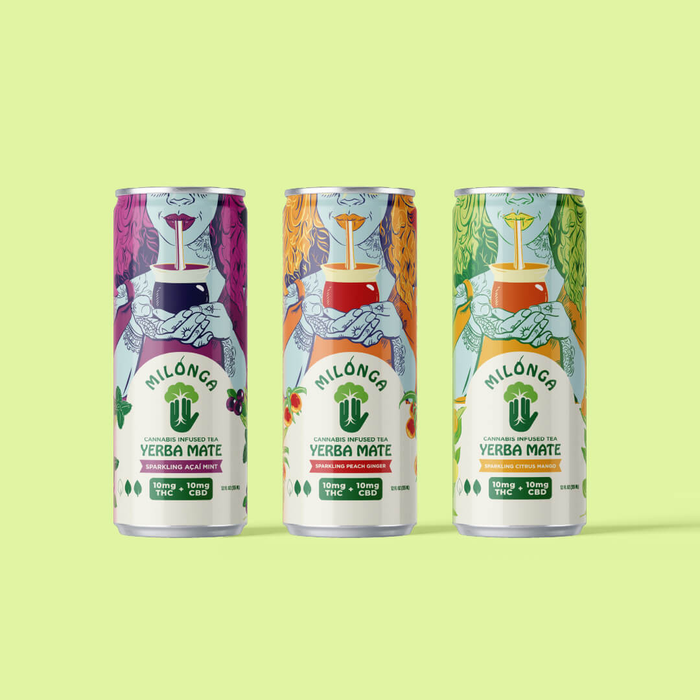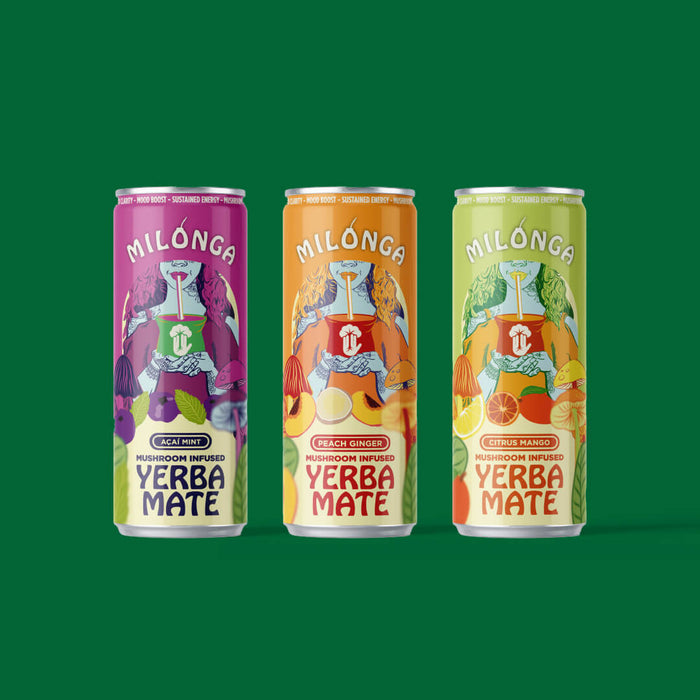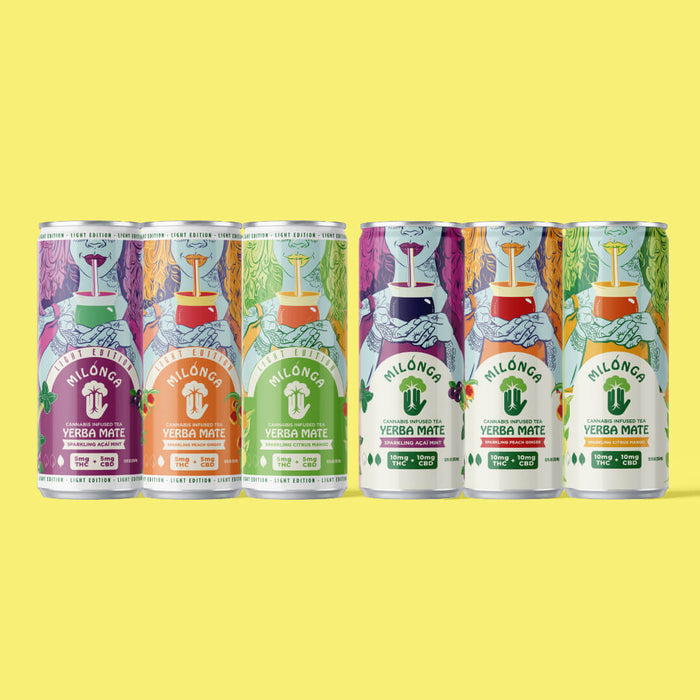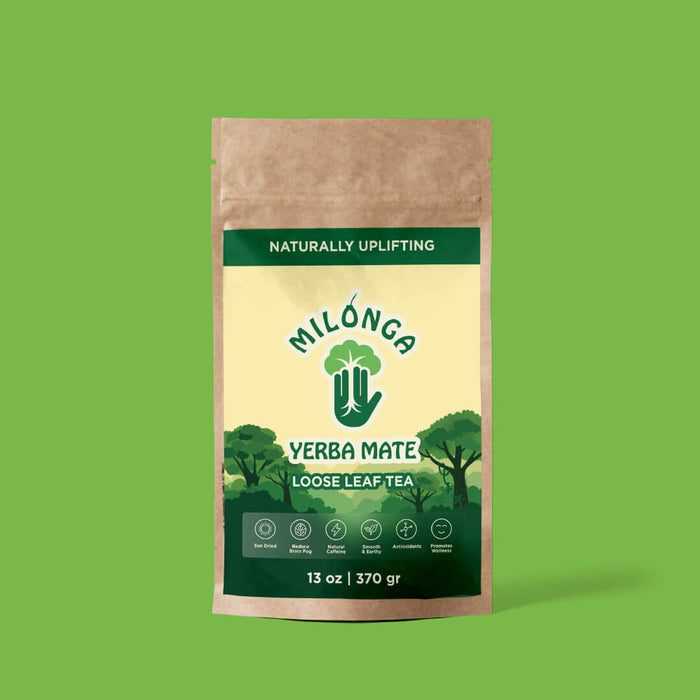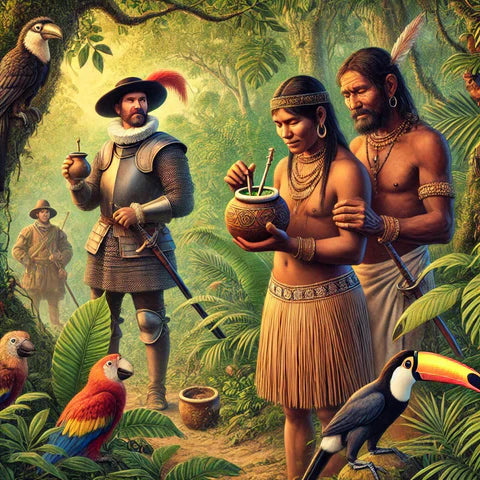

· By Company Gybo
The History of Yerba Mate: A Journey from Indigenous Roots to Global Trend
Yerba mate, a traditional South American beverage, has a rich history that spans several centuries and cultures. Known for its distinct flavor and numerous health benefits, yerba mate has evolved from a local ritual to a global phenomenon. This blog post explores the fascinating journey of yerba mate, from its indigenous origins to its current status as a functional beverage in the health and wellness industry.
Origins and Indigenous Roots
The story of yerba mate begins with the indigenous peoples of South America, particularly the Guaraní and Tupí communities. These groups discovered the energizing effects of the yerba mate leaf centuries ago and used it in various rituals and daily life. The plant, native to the subtropical regions of Argentina, Paraguay, Uruguay, and Brazil, was not only a beverage but also a social practice, strengthening community bonds. The term "mate" is derived from the Guaraní word "matí," which refers to the gourd traditionally used to drink the infusion.
How Spanish Colonization Spread Yerba Mate Culture
Yerba mate culture underwent significant transformation during the Spanish colonization of South America. The Spanish, intrigued by the local custom, adopted yerba mate not only for its flavor but also for its ability to ward off fatigue. It quickly became a staple among the colonists and spread throughout the continent. Jesuit missionaries played a crucial role in its cultivation, establishing yerba mate plantations that helped integrate the practice into daily colonial life, marking an important chapter in the Spanish yerba mate history.
Yerba Mate in 18th & 19th Century Trade: From Local to Global
As trade networks expanded in the 18th and 19th centuries, yerba mate began to reach new shores. The commodity was traded along with silver, hides, and other regional goods, traveling from the heart of South America to Europe and beyond. This period marked yerba mate's transition from a regional delight to a global commodity, finding its place in the global market and influencing yerba mate drinking culture far beyond its original geographic confines.
Why Yerba Mate is a National Drink in Argentina, Paraguay & Uruguay
In countries like Argentina, Paraguay, and Uruguay, yerba mate is more than just a beverage; it is a national emblem of pride and culture. Its significance is embedded in daily life, where the ritual of sharing a mate signifies trust and community. The practice is so revered that these countries have designated yerba mate as a national drink, celebrating its cultural importance and the deep-rooted tradition that accompanies its consumption.
Yerba Mate’s Transition from Tradition to Trend
In recent years, yerba mate has transitioned from a traditional South American beverage to a trendy choice among health-conscious consumers worldwide. Its appeal lies in its reputation as a natural, energizing alternative to coffee. With a unique blend of caffeine, theobromine, and antioxidants, yerba mate offers a balanced energy boost without the jitters often associated with coffee, making it a favored choice among those looking for sustainable energy solutions.
Why Athletes & Health Enthusiasts Are Turning to Yerba Mate

Athletes and health enthusiasts are increasingly turning to yerba mate for its performance-enhancing qualities. Studies suggest that the caffeine in yerba mate can improve muscle contraction, reduce fatigue, and enhance sports performance, making it a popular choice in the fitness community. Additionally, its metabolic benefits support weight management and increased energy expenditure, underscoring the yerba mate energy benefits.
The Functional Beverage Market: How Yerba Mate is Evolving
As the functional beverage market continues to grow, yerba mate is carving out a significant niche for itself. This evolution reflects a broader shift towards beverages that offer health benefits beyond basic nutrition. Yerba mate’s profile as a functional beverage is enhanced by its array of antioxidants, minerals, and vitamins, making it a compelling choice for those looking to enrich their diet with health-promoting ingredients.
From its humble beginnings among the indigenous populations of South America to its emergence as a powerhouse in the functional beverage market, yerba mate has maintained its cultural significance while adapting to the demands of a global audience. This enduring adaptability and rich cultural heritage continue to fuel the global fascination with yerba mate, making it a timeless beverage that transcends borders and generations.
